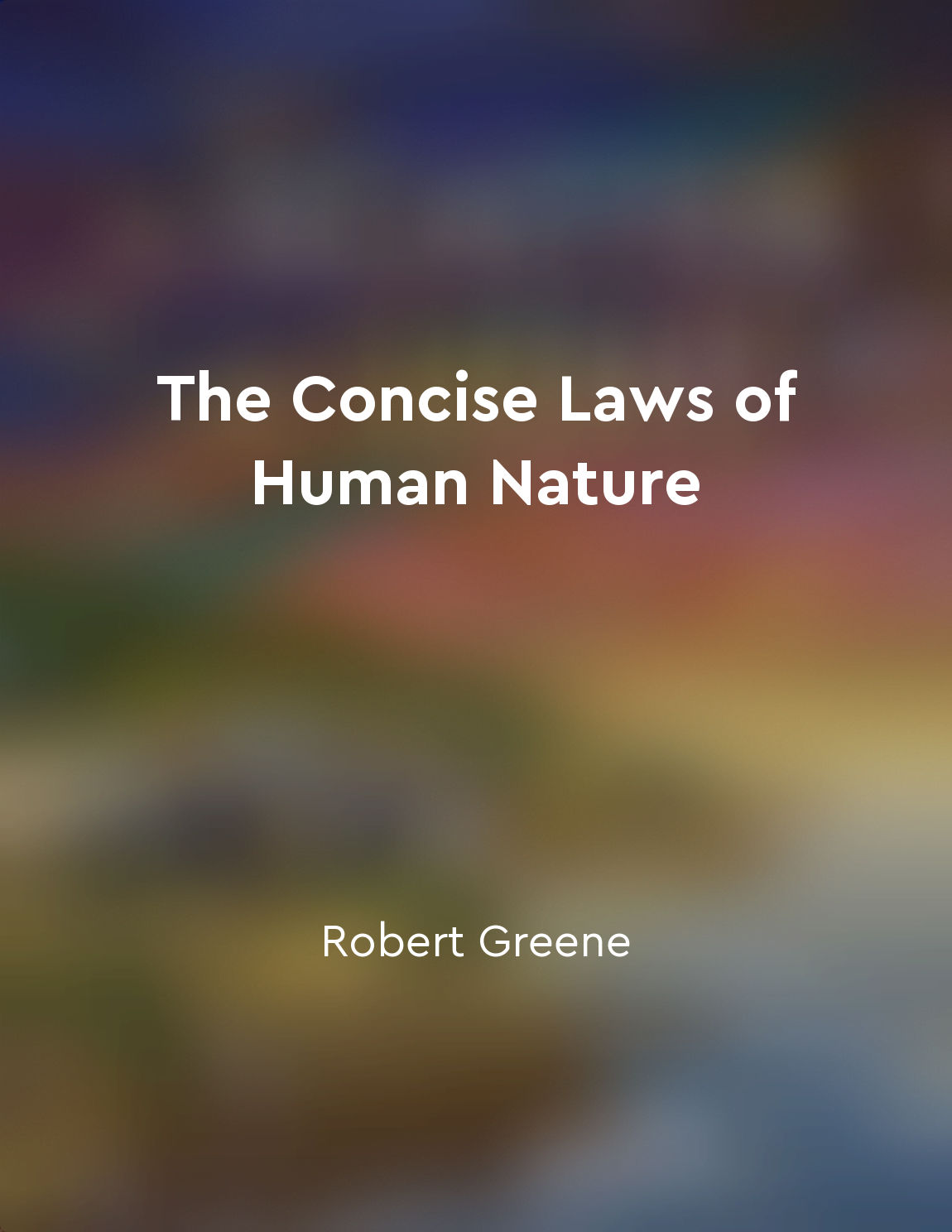Audio available in app
Trust your instincts from "summary" of How to Read a Person Like a Book by Gerard Nierenberg,Henry H. Calero
When it comes to reading people, one of the most important concepts to keep in mind is the idea of trusting your instincts. Your instincts are like a built-in radar system that can help you pick up on subtle cues and signals that you might not consciously be aware of. These instincts are the result of years of evolution, as our ancestors had to rely on their ability to read others in order to survive in social groups. When you trust your instincts, you are essentially tapping into this deep well of subconscious knowledge that can help guide you in your interactions with others. It's like having a sixth sense that can help you navigate the complexities of human behavior. By paying attention to your gut feelings and intuitive reactions, you can gain valuable insights into the thoughts and emotions of those around you. However, it's important to note that trusting your instincts doesn't mean acting impulsively or without thought. It's about being mindful of the signals that your body and mind are sending you and using that information to inform your decisions and actions. It's about being in tune with yourself and being open to the messages that your instincts are trying to communicate to you. In order to trust your instincts, you need to first learn to listen to them. This means paying attention to how you feel in certain situations, noticing any physical sensations or emotional responses that arise, and being curious about what those feelings might be trying to tell you. It's about tuning in to the subtle cues that your body is giving you and learning to interpret them in a way that can help you better understand the people you are interacting with. Trusting your instincts also requires practice and experience. The more you rely on your intuition and pay attention to the signals it's sending you, the better you will become at reading people like a book. It's a skill that can be honed over time, as you learn to trust yourself and the insights that your instincts can provide. So the next time you find yourself in a social situation, remember to trust your instincts and see where they might lead you.Similar Posts

Nonverbal cues play a significant role in communication
When it comes to communication, words are just one piece of the puzzle. Nonverbal cues are like the hidden language that can of...
Different body parts convey different messages
The way we move our bodies can speak volumes without us even saying a word. Our gestures, postures, and facial expressions all ...
Understanding body language can lead to better negotiation skills
Mastering body language is crucial in the art of negotiation. By being able to read and interpret the nonverbal cues of the oth...
Power poses can boost confidence and influence in social interactions
In the realm of social interactions, confidence plays a key role in how we are perceived by others. One way to enhance confiden...
Clothing choices convey social status
When we talk about clothing choices, we're not just talking about what looks good or fits well. Our fashion choices say somethi...
Illustrators emphasize verbal communication
Illustrators are gestures that occur simultaneously with speech. They serve to emphasize and punctuate what is being said verba...
Seek common ground to bridge differences
Establishing common ground with someone serves as a vital component in fostering a connection. It is the foundation upon which ...

Practice observing body language in different contexts
To truly understand body language, one must practice observing it in various situations. This means paying attention to how peo...
Cultivating a sense of empathy can foster deeper connections with others
Developing empathy is an essential skill that can lead to stronger and more meaningful relationships with others. By putting ou...

Striving for selfmastery is a lifelong journey that requires self-discipline and awareness
The path to self-mastery is not a destination to be reached but a journey to be embraced. It is a voyage that requires constant...
